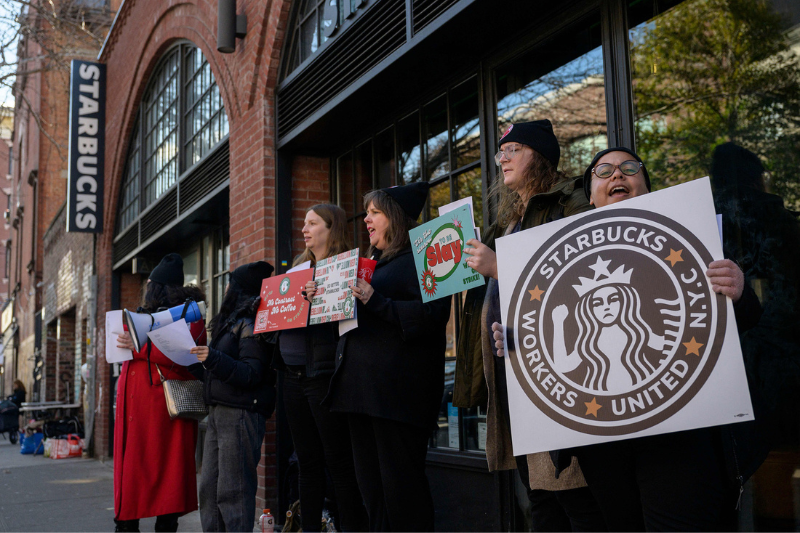

starbucks seeks supreme court in union battle
In a bold move, Starbucks has taken its unionization battle to the highest legal authority in the United States by appealing to the Supreme Court. The coffee giant aims to overturn a previous lower court decision that had mandated the reinstatement of terminated employees. In a press release issued on Wednesday, Starbucks announced filing a writ petition, marking a pivotal moment in one of the significant unions cases the company has encountered in recent years.
The specific case under Supreme Court scrutiny revolves around the Poplar & Highland store in Memphis, Tennessee, often referred to colloquially as “The Memphis Seven.” Last August, a US District Court judge in Tennessee rendered a decision on this matter. The lower courts have previously grappled with similar legal disputes between Starbucks and its union, Starbucks Workers United, resulting in divergent opinions.
Starbucks contends that the US Court of Appeals applied a lenient standard when allowing the National Labor Relations Board (NLRB) to obtain a preliminary injunction. The company is calling for establishing a “consistent standard” consisting of a “four standard test” that must be met before requests are granted, not only for this case but also for future cases.
“We are taking this proactive step because we believe the NLRB should be held to a consistent standard, and the Sixth Circuit erred in affirming, or granting, an injunction in this case,” Starbucks stated in a letter published on the Starbucks One website. This platform allows the company to share its perspective on unionization and ongoing legal battles.
Starbucks characterizes preliminary injunctions as extraordinary tools and alleges that the NLRB has frequently employed them, particularly in cases where employees are terminated for violating safety and security policies.
In related developments, a National Labor Relations Board judge recently ruled that Starbucks violated federal labor laws by making promises of wage and benefits increases for employees who did not work at unionized stores. The judge also alleged that Starbucks threatened salary or benefits loss if workers chose to unionize. As a remedy, the judge recommended that Starbucks aid and back pay to previously excluded employees and display the decision in its stores. Starbucks has signaled its intent to challenge this ruling.
Ariana Cortes, represented by the National Right to Work Foundation, asserts that the NLRB’s structure is unconstitutional due to the difficulty in removing board members from power. Cortes argues that the President should have the authority to remove board members. Despite her store being unionized since 2021, Cortes claims that the union has lost popularity, with many colleagues still wanting to join it.
The Communications Ministry of Indonesia seeks to develop a public endowment fund, which would strengthen independent journalism across the country…
Radio Free Asia (RFA), a U.S. government-funded news network that broadcasts in nine Asian languages, has virtually fired everyone in…
The Trump government revealed its intent in action to consider layoffs on a grand scale, under which agencies of the…
The Trump administration has launched a sweeping initiative to monitor around 450,000 unaccompanied migrant children who were placed during the…
During the May half-term Gatwick Airport could experience delays because workers from two different groups plan to strike about pension…
A serious injury at a construction site has netted a 49-year-old union worker a $5 million settlement. The attorneys Kenneth…
This website uses cookies.
Read More